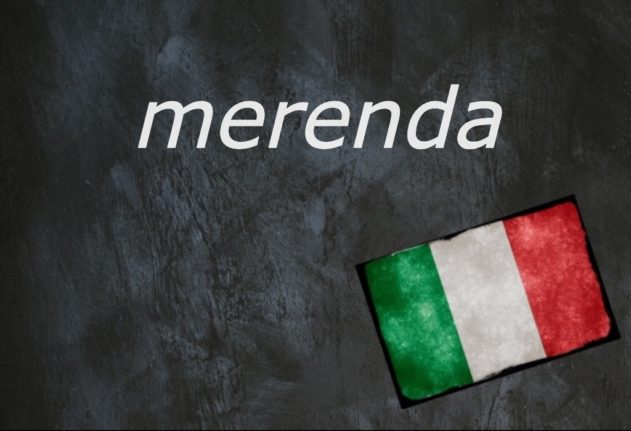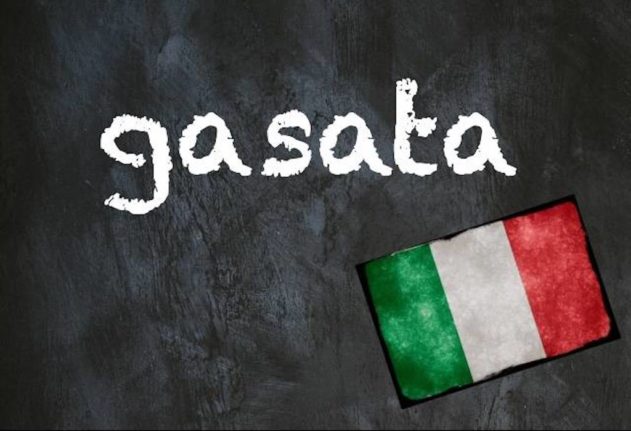Merenda is a word you may come across pretty early on in your Italian language journey, especially if you happen to have Italian colleagues at work or simply hang out often enough with Italian relatives or friends.
A merenda (pronunciation available here) is a small meal usually enjoyed in the mid to late-afternoon to keep hunger at bay until dinnertime.
In English this would generally be called a ‘snack’, though a merenda can also be a bit more substantial than what would normally qualify as an afternoon snack in other countries.
Oddly enough for a country with dozens of food-related dos and don’ts, there are no precise rules over what should (or should not) be eaten as a merenda.
You might opt for sweet foods (for instance, a slice of cake, cookies, bread and jam, or some yoghurt with dried fruit) or go for something savoury (e.g., a slice of focaccia, salted crackers, a tramezzino sandwich or even a panino with cold cuts or cheese).
For schoolchildren, pane e nutella (bread with nutella cream) is by far the most popular option, though pre-packaged snacks, often referred to and advertised as merendine, or ‘little snacks’, have grown in popularity in recent years.
Regardless of exactly what they’re snacking on, Italians see their afternoon merenda not just a way to beat hunger but also a key break during their day, which is why the following workplace scenario isn’t all that rare:
Ma dove diavolo stai andando? Abbiamo una riunione tra 20 minuti!
Scusami, devo fare merenda. Torno subito.
Where the heck are you going? We have a meeting in 20 minutes!
Sorry, I need to have a snack. I’ll be right back.
Remember: Italians don’t ‘have’ a snack, but they ‘make’ a snack, hence the expression fare la merenda, or, for short, fare merenda.
Ho appena fatto merenda con due fette di torta alle mele.
I’ve just snacked on two slices of apple pie.
As a nice bit of trivia for your next Italian general culture quiz, the word merenda comes from the late Latin verb merere (‘to deserve’), and means ‘things that must be deserved’.
Do you have a favourite Italian word you’d like us to feature? If so, please email us with your suggestion.
Don’t miss any of our Italian words and expressions of the day by downloading our new app (available on Apple and Android) and then selecting the Italian Word of the Day in your Notification options via the User button.



 Please whitelist us to continue reading.
Please whitelist us to continue reading.
Member comments